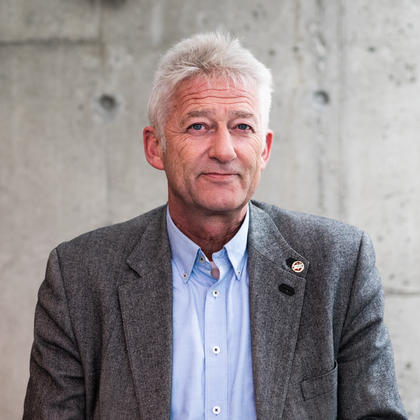Enough is Enough
Covid corner-cutting will lead to deaths, ‘environmental catastrophe’ – new shipping report
The International Transport Workers’ Federation (ITF) has issued a stark warning that if temporary short cuts adopted in the industry during the Covid-19 pandemic continue or become permanent, then there will be a rise in shipping accidents and environmental disasters.
The predictions are contained within a new report released by the ITF’s Maritime Safety Committee: Beyond the Limit: How Covid-19 corner-cutting places too much risk in the international shipping system.
Report co-author and chair of the Maritime Safety Committee, Odd Rune Malterud, says the report shows an unsustainable trend by industry players, including flag states, to deprioritise ship safety out of expedience rather than necessity.
“Some industry players are pushing for exemptions from, or the outright suspension of, important international rules. These rules were introduced to protect seafarers’ safety, lives, and the marine environment over many decades. They are the result of learning from incidents in the past: be it an accident; a drowning; a spill; a grounding; or a death.”
“Take remote inspections – we don’t oppose their use for technical inspections when they are safer than the alternative, for example in the use of drone technology which can replace risky manned inspections of the ship's structures and tanks. But it is completely unacceptable to see countries like Norway allowing remote inspections where crew themselves are expected to independently and objectively report on their own safety and security on top of their watch keeping duties.”
“Given the growing power imbalance caused by the crew change crisis, crew are under enormous pressure to appease their employers, who are often a seafarer’s only way off a ship after months at sea. What is more – most employers will expect crew to pick up these remote inspection tasks on top of their already overburdened workload, often when a seafarer is supposed to be keeping watch for everyone’s safety.”
Malterud said the report was about putting a line in the sand over the industry’s rapid backslide on safety and seafarers’ rights.
“Enough is enough. It is our obligation as seafarers’ representatives to raise the warning because what we are witnessing right now causes us extreme worry. We cannot in good conscience be complacent and allow seafarers’ safety and security to be put at risk. The shipping industry is now a ticking timebomb towards an environmental catastrophe.”
“Pandemic or not: the public will not accept more deaths at sea and strewn ships spilling oil over precious coastal wildlife. That is the consequence of allowing this much risk in the industry.”
“Governments know what could happen, and that’s why we have seen them refusing and detaining unsafe ships in their own ports. This is despite those same governments endorsing dangerous short cuts for ships to them to operate elsewhere. Well, if a ship is too risky for the harbours of Australia and Norway, it is too risky anywhere,” said Malterud.
ITF Seafarers and Inland Navigation Section Coordinator, Fabrizio Barcellona, said the ITF’s Crew Change Survey for September showed that seafarers recognised rising risk in the industry.
73.3% of seafarers who took the ITF survey said they worried about ‘Being tired and fatigued’, while 60.1% said it was more likely than not that they or their crewmates would be ‘involved in an accident that could harm human life, property or the marine environment due to tiredness or fatigue while on board’.
“This is not just about crew change, but that is part of the story,” he said. “Government restrictions on borders, travel and transit have made it difficult to recruit seafarers and some in the industry are responding by dumping more and more work on the tired and fatigued workforce who remain on ships”
“Minimum Safe Manning levels should prevent that from happening, but flag states all over the world are now making a mockery of their role as manning level regulator. We have ship owners proposing manning numbers for their ships that are well-below what would have been considered safe pre-pandemic, and flag states rubber-stamping these proposals through exemptions.”
“Inadequate manning levels spread the same workload across a smaller number of seafarers. The result is over-worked, stressed seafarers onboard who are not physically or mentally well-rested enough to discharge their duties safely. These seafarers worry day and night about the threat of accidents occurring. Seafarers cannot be blamed for those accidents which result from the impossible situation they are being put in.”
Barcellona said the ITF and its affiliated unions are calling for flag states and port states to get back to enforcing the rules, most of which they created through the International Maritime Organisation.
“We understood the need for flexibility early on in this pandemic. But it has been six months now, and we have reached the safe limit of exemptions, extensions and all-too-convenient interpretations of these life-saving rules. If action is not taken, there will loss of human life and irreparable damage to marine ecosystems,” said Barcellona.
